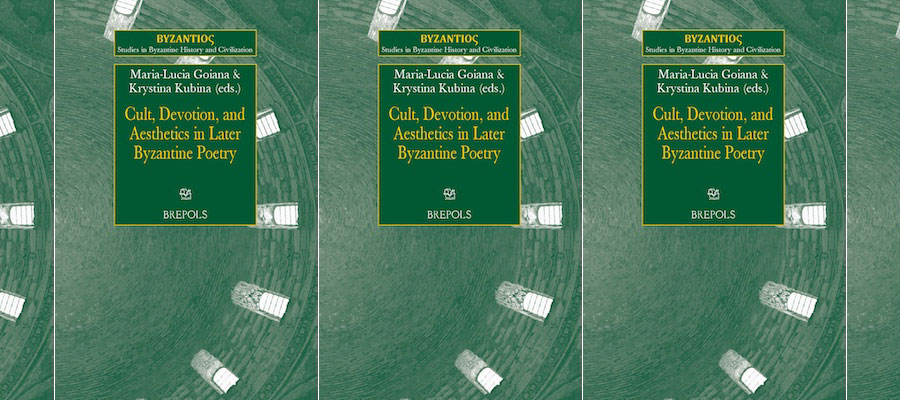Maria-Lucia Goiana and Krystina Kubina, eds. Cult, Devotion, and Aesthetics in Later Byzantine Poetry. Byzantioς. Studies in Byzantine History and Civilization, 22. Brepols, 2024.
From Brepols
Public religious ritual and private devotional practice together occasioned much of the production of Byzantine poetry. This includes not only hymns, an integral part of the liturgy since Late Antiquity, but also versified texts with a specific liturgical function (synaxaria, calendars, metrical prefaces), metrical hagiography, epigrams (inscribed on church buildings, icons, religious objects, books), or poems with a more personal character, such as versified prayers, catanyctic poems (i.e., poems of contrition) and self-addressed poems (eis heauton). These texts often have much in common, well beyond their metrical form: from their contexts of performance and reception to the themes, literary motifs, and rhetorical devices they contain. It was not uncommon for a single author to write in a variety of the aforementioned genres; and yet these texts are rarely studied together (not least due to the specialized nature of the expertise of individual scholars). Later Byzantium offers us a particularly rich spectrum of sacred poetry, which has only recently started to arouse significant interest. While most of its poetic genres have a long history in Byzantine literature, their metamorphoses in this period – connected to changes in socio-political, cultural and religious conditions – deserve closer study. It is the purpose of this volume to propose a broader scholarly approach to the aesthetics of Byzantine poetry, taking into consideration the contexts of religious practice and devotion from c. the 11th to the 15th centuries.
